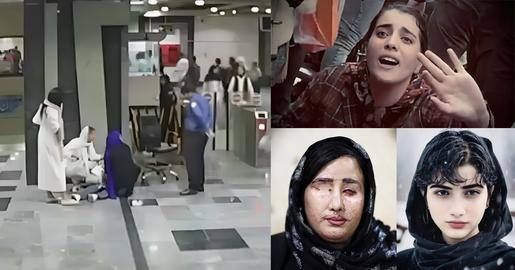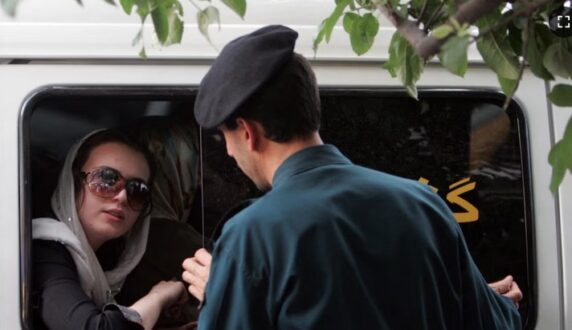Iranwire – Videos and testimonies shining a light on violent encounters between women and girls without head coverings and hijab enforcement officers have recently emerged.

The 16-year-old Armita Geravand died after being assaulted at a Tehran metro station for not wearing a headscarf, while Roya Zakari, 31, was taken to a mental hospital in the northwestern city of Tabriz after a physical altercation at the hands of the morality police.
Many women in Iran grapple with the fear of being subjected to similar acts of violence.
“When I step onto the subway or a bus, I’m haunted by the fear that one of their agents might be there, ready to harm me,” says a young woman living in the outskirts of Tehran. “When I’m not wearing a headscarf, I constantly glance over my shoulder.”
“In the past, you could wear a mask and sunglasses and they would simply issue you a summons. However, their tactics have now shifted toward violence,” she adds.
The current tense atmosphere reminds her of a series of acid attacks which led to the deaths and maiming of several young women in the central city of Isfahan in 2014. The attacks are thought to have been carried out by extremists who took issue with women who did not wear hijab.
“It was similar back then, and I wasn’t the only one,” the woman recalls. “When a motorcycle passed by, we trembled in fear that it might be an acid attacker.”
Mahtab Qolizadeh, a journalist and women’s rights activist, took to the social media platform X to relate an incident that took place at a gas station on October 30.
“I was refueling when the gasoline hose suddenly burst and gasoline splashed onto my face,” Qolizadeh wrote. “At that very moment, I was gripped by fear that a government agent might be punishing me for not complying with mandatory hijab rules. I was worried that someone might ignite a lighter and set me on fire.”
“My eyes stung and I screamed, fearing I might go blind or that someone would throw a lighter at me. A kind woman and a man rushed to my aid, helped me and reassured me that nobody had any intention of harming me. The gasoline nozzle had malfunctioned, causing the accident,” she continued.
The Iranian authorities have intensified their crackdown on women and girls who refuse to wear a headscarf following months of unrest in 2022 sparked by the death of 22-year-old Mahsa Amini while in police custody. Amini had been detained for allegedly wearing a head covering improperly.
However, many defiant women continue to appear in public without hijab, in a direct challenge to the country’s clerical rulers.
“Women in Iran are engaging in civil disobedience against mandatory hijab laws, and the government is employing various tactics to threaten or punish women in an attempt to quash this civil resistance,” Saeed Peyvandi, a sociologist and professor at the University of Lorraine in France, tells IranWire.
“The government is displeased with this infringement of the law, but since it lacks the means to control hundreds of thousands or even millions of women in Iran to ensure compliance with hijab, an atmosphere of intimidation and fear has taken hold among women,” Peyvandi continues.
“Those engaging in aggressive behavior [against women] in subways, buses, and on highways are predominantly individuals like members of the [paramilitary] Basij force, who receive minimal salaries for their services and often have other jobs elsewhere,” he says. “However, they are mobilized to safeguard the government. Following the authorities’ threats, these individuals heed the orders and permit themselves to act aggressively and harm women.”
Psychotherapist Shahrazad Pourabdullah underscores that many women experienced trauma when witnessing acts of violence committed by government forces against women without headscarf.
When these traumatized women find themselves in a “threatening scenario,” they might “experience panic, shortness of breath, trembling limbs, scream, faint or flee,” according to Pourabdullah.
The psychotherapist encourages women in the country to develop better control over their reactions, insisting that “women in Iranian society should work on this matter.”
“We may briefly feel like we’re under attack for a few seconds to a couple of minutes, but we need to swiftly gather ourselves and engage the rational part of our brain to evaluate [the situation] and calm down,” Pourabdullah says.
 Shabtabnews In this dark night, I have lost my way – Arise from a corner, oh you the star of guidance.
Shabtabnews In this dark night, I have lost my way – Arise from a corner, oh you the star of guidance.



